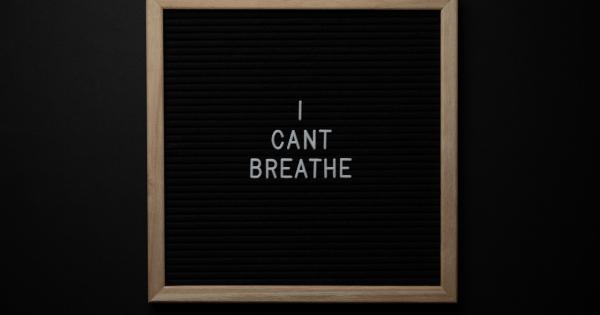Burnout is a state of chronic physical and emotional exhaustion caused by constant stress and overwhelming workloads. It affects many individuals across various professions, from healthcare workers and teachers to executives and entrepreneurs.
While occasional stress is a normal part of life, ignoring the signs of burnout can have severe consequences on one’s mental and physical health. Recognizing these signs early on can help individuals take the necessary steps to prevent or recover from burnout. In this article, we will explore the ten telltale signs of burnout that should not be ignored.
1. Feeling Exhausted All the Time
One of the first noticeable signs of burnout is a constant feeling of exhaustion. Regardless of how much sleep you get or how many breaks you take, you may still find yourself feeling physically and mentally drained.
This exhaustion may persist even after a vacation or time off work, making it difficult to find the energy to complete daily tasks and engage in activities you once enjoyed.
2. Decreased Job Performance
Burnout can significantly impact your job performance. You may find it increasingly challenging to concentrate and stay focused on your work tasks, resulting in a decrease in productivity.
Simple tasks may take much longer to complete, and you may make more mistakes than usual. As burnout progresses, you may also experience a sense of cynicism and detachment from your work, further impeding your performance.
3. Emotional Exhaustion
Emotional exhaustion is another primary symptom of burnout. It manifests as a depletion of emotional resources, leaving you feeling emotionally drained and overwhelmed.
You may find it difficult to control or express your emotions, leading to increased irritability, frequent mood swings, or even emotional outbursts. Additionally, you may feel detached or disconnected from the people and activities that once brought you joy and fulfillment.
4. Increased Anxiety and Depression
Burnout can also contribute to the development or exacerbation of anxiety and depression.
The chronic stress and exhaustion associated with burnout can disrupt your brain’s neurochemistry, leading to imbalances that can trigger or worsen these mental health conditions. You may experience heightened levels of worry, irritability, sadness, and a loss of interest in activities that you once found pleasurable.
In severe cases, burnout can even lead to suicidal thoughts or behaviors, making it crucial to seek help and support when needed.
5. Insomnia and Sleep Disorders
Sleep disturbances are common among individuals experiencing burnout. As the mind races with worries and stressors, falling asleep becomes challenging. You may find it difficult to quiet your thoughts, leading to insomnia or restless sleep.
Alternatively, you may find yourself sleeping excessively as a way to escape from the demands and pressures of everyday life. Changes in sleep patterns can further exacerbate feelings of exhaustion and hinder overall well-being.
6. Physical Symptoms and Health Issues
Burnout not only affects your mental well-being but can also manifest in various physical symptoms and health issues. Physical signs of burnout may include frequent headaches, muscle aches, gastrointestinal problems, and a weakened immune system.
Moreover, chronic stress can increase the risk of developing long-term health conditions such as heart disease, high blood pressure, and diabetes. Therefore, ignoring burnout can have severe consequences for both mental and physical health.
7. Loss of Interest and Satisfaction
Burnout often leads to a decline in interest and satisfaction in both professional and personal aspects of life. Activities that used to bring joy and fulfillment may now feel like burdens or chores.
You may lose your passion for work, hobbies, and spending time with loved ones. This loss of interest can further contribute to emotional and mental exhaustion, perpetuating the cycle of burnout.
8. Increased Irritability and Anger
Burnout can lead to a shorter fuse and increased irritability. Little things that once didn’t bother you may now evoke strong negative emotions. You may find yourself snapping at coworkers, loved ones, or even strangers over minor inconveniences.
This irritability can strain relationships and further contribute to feelings of detachment and isolation.
9. Social Withdrawal
When experiencing burnout, you may feel a strong urge to withdraw from social interactions. Engaging in conversations or maintaining relationships may feel exhausting and overwhelming.
You may find yourself canceling plans with friends and avoiding social events altogether. This withdrawal can further deepen feelings of loneliness and isolation, amplifying the negative impact of burnout on your well-being.
10. Neglected Self-Care
Self-care often takes a back seat when burnout takes hold. You may find it difficult to prioritize your own needs and well-being amidst the demands of work and life.
Neglecting self-care activities, such as exercise, healthy eating, and relaxation techniques, can further contribute to the overall decline in mental and physical health associated with burnout.





























